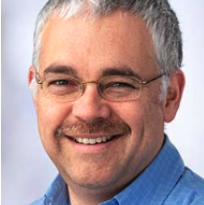Johnnie J.
Orozco
M.D.
Ph.D.

(206) 667-4102
Fred Hutch Cancer Center
1100 Fairview Ave. N, D3-190
Seattle, WA 98109
Photo: Fred Hutch
Education, Training, Board Certifications
- M.D., University of Washington
- Ph.D., University of Washington
- Residency, University of California, San Francisco
- Fellowship in Hematology/Oncology, UW/Fred Hutch
- Medical Oncology, American Board of Internal Medicine
- Hematology, American Board of Internal Medicine
- Internal Medicine, American Board of Internal Medicine
Clinical Expertise
- Hematopoietic stem cell transplantation
- Leukemia
- Radioimmunotherapy
- Antibody-drug conjugates
Affiliations
Research and/or clinical interests
Dr. Johnnie José Orozco is a practicing oncologist who studies novel ways to make the transplantation of blood-forming stem cells safer and more effective. His research tests radioimmunotherapies that use immune system proteins known as antibodies to selectively target radioactivity to cancer cells, sparing normal tissues. The antibody and its radioactive payload locate and kill tumor cells by damaging their DNA.
Dr. Orozco’s research is primarily focused on partially matched transplantation, in which the recipient and the donor do not share all of the genetic markers that are used for tissue matching. This is of particular importance to racial and ethnic minorities who need transplants but cannot find a fully matched donor from transplant registries, in which donors are predominately non-Hispanic whites. His goal is to extend the benefits of transplantation to more people by making it safer for patients whose only option may be a partial match.
In ongoing studies, Dr. Orozco is working to identify the ideal alpha radionuclide to be used in radioimmunotherapies that can reduce relapse risks after transplantation, including transplants in which haploidentical (half-matched) family members serve as donors. Using a murine leukemia model, he is testing Y90, At211 and I131 bound antibodies that recognize a molecule called CD45 that is found on most blood cells, including leukemia cells. He is working to identify optimal chemotherapy combinations and radiation doses as well as the ideal radionuclide that produce the best stem cell engraftment and survival with the lowest toxicities.



